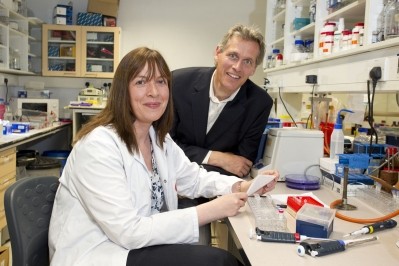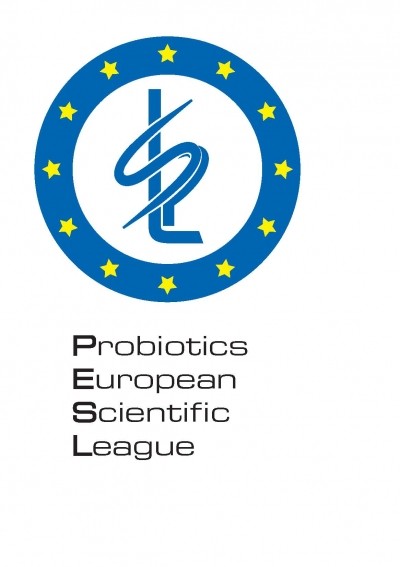The opportunities and obstacles for gut health science

In an exclusive interview with NutraIngredients.com, Prof Licht of the National Food Institute at the Technical University of Denmark said she strongly believes that smaller changes in the microbiota could make important differences for the health risk factors, but that we are at the tip of the iceberg.
“There is still so much we don’t know, but with new technologies becoming available, we can explore changes in the microbiota to a level of detail that couldn’t be close to investigating a decade ago,” said Licht.
However, Prof Licht – who won the award for her research over the past five years into the effects of food and food ingredients on intestinal microflora – warned that even with increasing interest and research into gut health it may be many years before we are fully able to understand the complex interactions of the gut microflora ecosystem.
“It’s not an area where I think we will understand everything five years from now, but I think that our understanding of these interactions will start to be much better elucidated in say ten years time.”
Complex ecosystem
Prof Licht said that although we have known for hundreds of years that we have bacteria living in our guts, it is only recently that new technologies have allowed us to begin to understand the size and complexity of the ecosystem living within us.
Indeed, there are ten times more bacteria in the gut than there are calls in the human body, leading some to say that we are 90 per cent bacteria, and only 10 per cent human.
“In recent years people have started to consider this microbiota as an organ in itself. It has its own metabolism and communicates with the body via receptors and chemicals – that is quite a new way of seeing things,” said Licht.
She added that the knowledge and indications to suggest that gut microflora interact with the risk factors for lifestyle associated diseases and human health has “really exploded” in recent years.
Bifidogenic challenge
Until quite recently, something was considered to be beneficial for us if it showed a bifidogenic effect. “This is because the bifidobacteria are normally considered to be the ‘good bacteria," she said.
It is known that ‘at risk’ populations more than often have much lower amounts of bifidobacteria in their gut compared to other populations.
“The challenge now for many companies is that the European Food Safety Authority has now clearly stated that it is not enough to establish a food increases the number of bifidobacteria. You also need to establish that the increase is beneficial in some way,” she said.
“Even though we know that susceptible groups have low amounts of bifidobacteria, that’s not the same as saying that if the bifidobacteria increase things get better.”
Licht said research needs to establish new biomarkers for specific risks and mechanisms, because end points other than bifidogenic effect will need to be used in the future.
However this could be difficult to achieve due to the complex interactions between the microbiota and the body.
“If there is a change in microbiota then that will induce a change in the intestinal tissue, and the body will respond to that. But then due to that response another change is induced in the microbiota.
“This is an ongoing interaction that in many inflammatory diseases becomes a vicious circle ... If we can figure out how to break that circle by altering the microbiota ecosystem then perhaps we can improve things for people with these problems."
Finding the link
There is a host of evidence from animal data to suggest the composition of the microbiota is associated with developments in health and disease. However it is currently difficult to build solid evidence in humans to show that any nutritional change can affect health outcomes through the action, Professor Licht said.
“There is a lot of mechanistic evidence showing that the bacteria speak to the body through specific receptors in the intestine, and induce transcription of specific genes which are relevant for inflammation or immune development. But, there is very little epidemiological evidence in humans to show we can change health status through changing the microbiota."
EFSA frustration
She can understand industry frustration at recent EFSA rejections, but although there is a lot of evidence to suggest certain bacteria have beneficial effects, from a regulatory point of view it makes sense to ask for more solid evidence.
“I think that most people don’t care if they have many bifidobacteria or not in their intestine, if they don’t know that those bacteria actually mean something for them in regard to their health,” she said.
“What EFSA is saying is that a bifidogenic effect is not enough to claim for example that it stimulates your immune response. The challenge is to provide innovative solutions that can establish the health effects of these foods.”
Relaxing regulations?
She argued that there is no point relaxing regulations if that leads to poor or unsubstantiated claims being passed, as in the long run it would undermine the regulatory process and take away credibility and faith of the consumer.
“In the long term, if we start to put health claims on foods which are not established, then consumers might begin to loose faith in the claims. And that is bad for industry, because the claims system doesn’t get noticed, and consumers end up thinking they cannot believe in any of them."
It is her belief that advances in the science will mean industry is able to produce the sort of evidence that EFSA is asking for – though this may take some time. The challenge of creating a solid evidence base for regulators may prove to be healthy for new innovations in functional food science.
“The answer to the statements from EFSA is to turn it into a challenge, not an obstacle. It is a way of getting claims with better credibility, by trying to understand what it is that’s more beneficial about having more bifidobacteria in the gut,” said Prof Licht.
However such changes need to be approached in a very individual way:
“I think we should take care not to see these functional foods as a ‘one fits all’ solution. We need to know more about the effects of gut bacteria, and their effects on specific risk factors in order to have good strategies in order apply more specific changes."
Nathan Gray is a science journalist writing for NutraIngredients.com, NutraIngredients-USA.com, FoodNavigator.com, and FoodNavigator-USA.com. He holds a degree in Human Biosciences, specialising in exercise nutrition.














